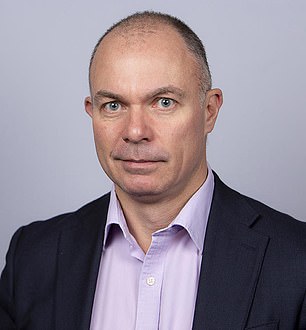Modern life can wear on the best of us. A YouGov survey found that one in eight Britons “live in a constant state of exhaustion” and a quarter feel tired most of the time.
Another survey found that 55 percent of us describe ourselves as “hyperfatigued,” a phrase that originated in a 2023 trends report from market research firm Mintel and relates to consumers bombarded by too much information. “The pandemic, rising cost of living, energy crisis, geopolitical unrest and climate crisis are all taking their toll,” it warned.
But when does fatigue become a medical problem? And what can be done about it? Here are some questions to consider…
WHAT IS FATIGUE?
Vincent Deary, professor of applied health psychology at Northumbria University and author of How We Break: Navigating the Wear and Tear of Living, says: “One way to think of fatigue is as a physical, emotional and/or mental response to excessive demand or reduced capacity. It’s a signal that things are too much.”
Fatigue is different from tiredness, which usually disappears with sleep, and is considered a physical, emotional and/or mental response to excessive demand or reduced capacity.
GPs prefer the term “TATT”, or “tired all the time”, rather than “hyperfatigue”, says David Strain, associate professor of cardiometabolic health at the University of Exeter Medical School.
It can be caused by a variety of factors, from lifestyle issues to serious health problems.
ARE YOU TAKING CARE OF YOURSELF?
To keep fatigue at bay, first make sure you eat regularly, drink enough water, exercise regularly, get enough sleep, and keep stress to a minimum.
The NHS recommends cutting down on alcohol, especially before bed, and ideally avoiding caffeine for seven hours before bed.
She also warns that obesity could cause long-term fatigue by putting “extra strain on your heart, which can make you feel tired. Lose weight and you’ll feel much more energetic.”
WHEN DOES IT BECOME A MEDICAL PROBLEM?

Expert Karin Orman says sufferers can have a burst of energy and then be “exhausted for days.”
Fatigue is different from tiredness, which usually goes away with sleep, says Karin Orman, of the Royal College of Occupational Therapists. “People who suffer from fatigue may have bursts of energy, but then feel exhausted for hours or days afterwards.”
Professor Strain says that “if it’s constant, relentless and disproportionate to the activity, that’s when we start doing our research.”
See your GP, who may offer blood tests to try to rule out anaemia, vitamin deficiencies (particularly vitamin B12), kidney disease, liver problems, hypothyroidism and diabetes, which can all cause fatigue. Your tiredness could also be “post-Covid-19 syndrome” – persistent symptoms of the infection lasting at least two months. Your GP may refer you to a specialist “long Covid” clinic.
COULD IT BE ME?
The cause of myalgic encephalomyelitis (ME), also known as chronic fatigue syndrome, is unknown, but the most common symptom is extreme tiredness. It also causes sleep problems, concentration issues, and “post-exertional malaise,” where an everyday activity leaves you exhausted.

Professor David Strain says extreme tiredness is a common symptom of MS
Professor Strain says: “For example, you’ll be cooking dinner for the family and then need to rest as if you’d just run a marathon.”
Diagnosis is only made once other conditions have been ruled out. You may be referred to a specialist family medicine service, which can offer cognitive behavioural therapy, advice on how to make the most of the energy you have without exacerbating your symptoms, and medication to manage pain or sleep problems.
Unfortunately, there is no cure, although treatments can help control the condition and relieve symptoms.
ARE YOU PRIORITIZING JOY AND REST?
Professor Deary says it’s also important to identify what makes you happy. “Look at the things that occupy your time. Do they nourish you or do they just drain you?”
Permission should also be given to rest. Professor Deary says one of the biggest obstacles he saw during his decade of clinical work caring for fatigued patients was “people who believed that rest had to be earned, that rest was for the weak, or that ‘doing nothing’ was associated with guilt and shame.”
She adds: “Rest is not a luxury. The key is to discover what works for you, whether it’s reading, being in nature, meditation, culture, gardening, walking, connecting with a friend, playing games or doing crafts.”
“What simple but vital activities make you feel better than when you were found? Do more of them.”


